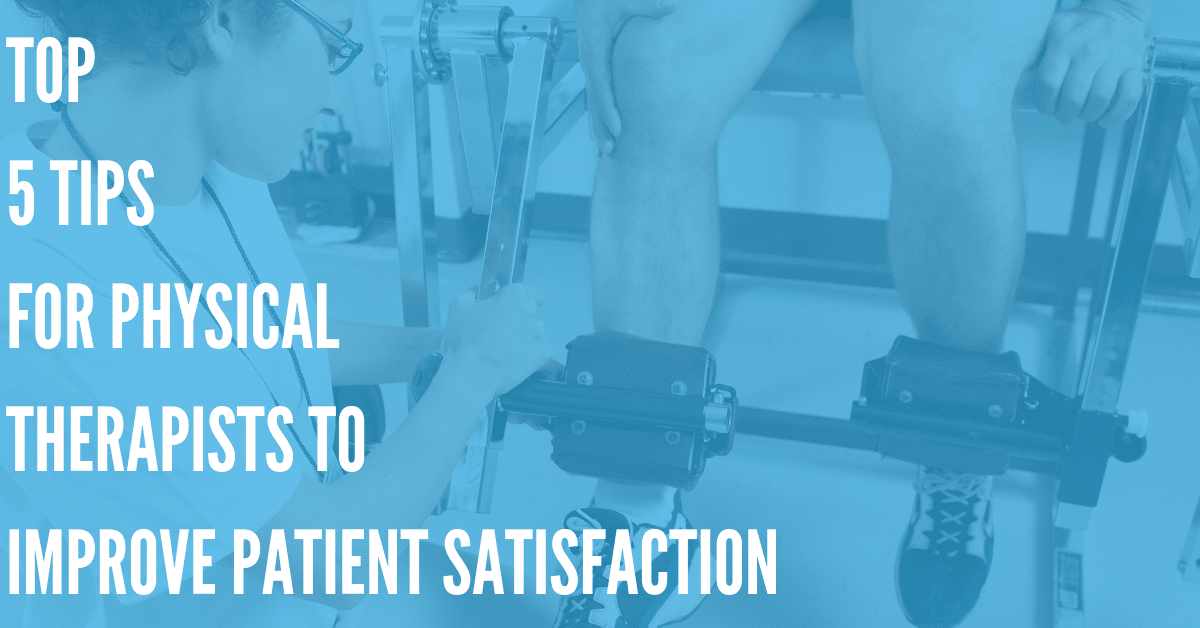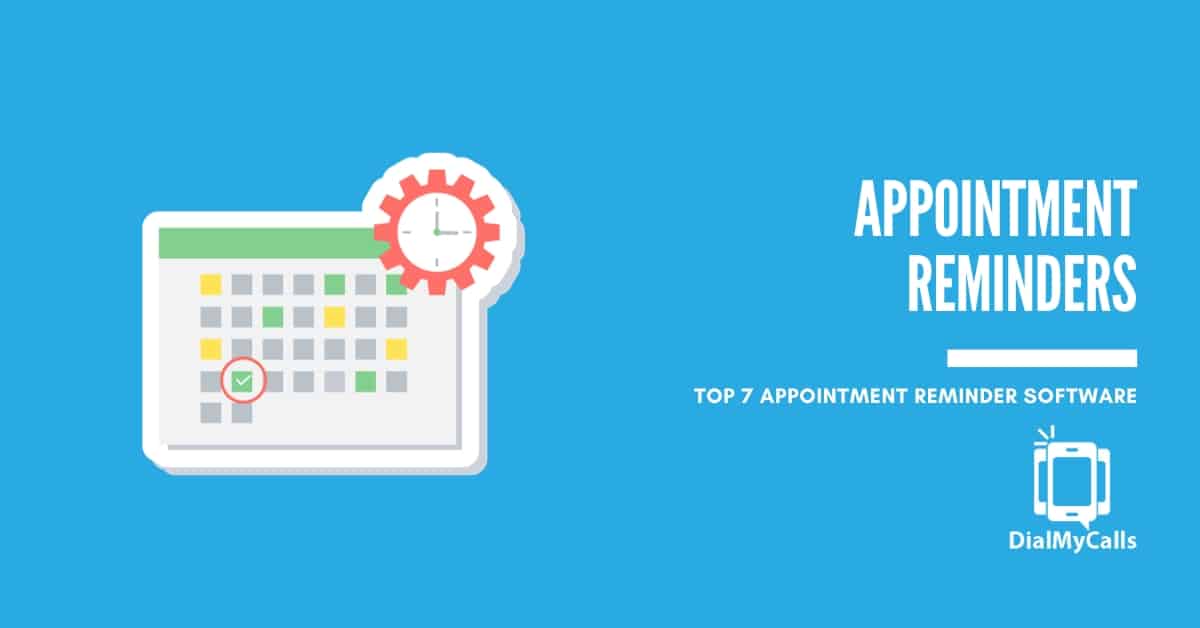Try Using DialMyCalls Right Now
Start For FreeRecent Posts
Categories
“I am a youth minister and have spent hours in the past calling students individually to remind them of an upcoming event or to get out an urgent announcement. With DialMyCalls.com, I cut that time down to about 1 minute. I also love how I can see exactly who answered live and how long they listened so I know if they heard the whole message. DialMyCalls.com is the best website I have stumbled upon all year! Thanks!”
Central Baptist Church
Try Using DialMyCalls Right Now
Start For FreeHow Physical Therapists Can Improve Patient Satisfaction
Posted by Tim Smith in Customer Reminders on March 8, 2019

As a physical therapist, you’re responsible for helping a variety of different people recover from injuries, disabilities, and chronic diseases. Whether you’re working with a young athlete who has a dislocated shoulder, or helping with rehabilitation after a car accident, you’re doing valuable, important work.
But how can you make sure that you deliver the best possible experience for your patients, and improve your patient satisfaction numbers? Many factors go into patient satisfaction – so this can often be quite difficult.
So, in this article, we’ll break down just a few of the best methods physical therapists can use to foster a more positive environment, and keep patients happy. Let’s get started!
1. Make a Smooth, Friendly Patient Experience Your #1 Priority
You need to focus on a truly positive, smooth end-to-end experience for your patients. From the first phone call they may to your office to schedule an appointment, to their final PT appointment, they should only have positive things to say about you, your staff, and their experience.
Even minor issues – such as delays in processing insurance or a rude employee – can seriously damage your reputation and patient satisfaction. So to begin with, you’ll need to discuss the importance of a great patient experience with your staff, to make sure you’re all on the same page.
Front office staff should be positive and helpful, and always willing to go the extra mile for patients. They should also help walk patients through everything they need to do to check-in for the first time.
Then, your clinical staff is responsible for delivering caring, customized treatment – with plenty of one-on-one time, and low waiting times. That last part is key – you should avoid overstuffing your schedule with appointments. Why?
Because you can’t treat more than one person at a time – or, at least, you shouldn’t, your goal should be to focus on the patient who is in front of you, not worrying about the three other patients who are still waiting to see you.
In addition, you should make sure that you focus on creating an efficient, happy atmosphere among your employees, and cultivate a positive team culture. Ask for feedback from your team about what you can do better, and take their advice into account.
2. Create a Written Payment Policy to Prevent Surprises – and Share Payment Information Online
Nobody likes to talk about money, especially when it comes to medical treatment. But misunderstandings about payment, insurance, and other details can have a huge negative effect on your patient satisfaction. For this reason, you should have a very clear, written payment policy, outlining:
- An explanation of how you check for benefits at the time a patient registers with your practice
- The insurance companies you work with
- Responsibility for co-pays and fees your patients will pay at each appointment
- Any applicable refund policy
- Provisions for collecting payment for late appointment cancellations or “no-call, no-show” appointments.
- Policies related to patients who cannot pay their balance
- An acknowledgment form that patients can sign, ensuring they understand these details
Outlining these details helps reduce the risk of a misunderstanding. For this reason, you should also include summaries of this information on the patient FAQ part of your website, so that potential patients will know what to expect before they come in.
3. Use an Appointment Reminder Service to Keep Patients Informed
We live in a world where all of us are quite busy. With work, caring for relatives and children, and other activities – it can be hard to track all of our obligations. So, one great way you can rise above the pack and ensure higher patient satisfaction is with an appointment reminder service.
You can use a service such as DialMyCalls to send automated reminders to patients about their appointments and care, via SMS text messages, customized voice messages, and even email broadcasts. This allows you to make sure that your patients know about any upcoming appointments – and make alternative arrangements if they can’t make it.
In addition, using DialMyCalls, you can set up a patient feedback line and send out automated phone polls to patients, so that you can get honest feedback about how you’re doing – and how you can improve.
4. Engage With Your Patients – Even After They’re No Longer in Your Care
As a physical therapist, your goal should be to help patients heal and recover as quickly as you can – and get them back to their normal, day-to-day lives. But, despite this, it’s still important to stay in touch with your patients, and engage with them – even after they no longer need your assistance.
By doing so, you’ll create a truly strong relationship with your clients. Something as simple as sending a quick email or a phone call, asking how they’re feeling and how their recovery is progressing, can help them feel more valued and appreciated. And, a helpful side effect of maintaining contact with past patients is that, if they need further therapy or aid in the future, your practice will be the first one that comes to mind – due to the excellent follow-up care you’ve already provided.
5. Create a Patient Satisfaction Goal – And Start Measuring Your Outcomes
Finally, we recommend that you create some kind of firm, solid patient satisfaction goal, and measure your success. After all, you can’t know how you’re doing unless you have data which will allow you to measure your progress!
For example, if you’re having issues with long patient wait times, begin tracking how long each patient has to wait before they see you, and take steps like using electronic forms and scheduling fewer patients per day, to see how you’re doing – and work towards your goal.
You could also choose to work on improving the scores you get on patient feedback forms, improving the speed of your payment collections, and more – the choice is yours. As long as you choose an easy-to-measure, patient satisfaction-related metric, you’ll be able to quickly understand how you’re doing, and how you can improve.
Follow These Tips – And Run a More Successful Practice!
Improving patient satisfaction is not easy, but it’s always worth it. Satisfied patients are more likely to return in the future, refer you to their friends, family members and loved ones, and will improve the reputation of your practice. So do what you can to follow these tips – and enjoy the benefits of higher patient satisfaction rates.


